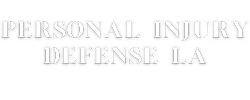Deposition Questions
There are some fairly standard questions that witnesses get asked at the beginning of a deposition but beyond these, the questions that are asked pertain to the specifics of the case that is being tried.
A deposition is a process where a witness in a case gives sworn, oral testimony and evidence outside of a courtroom setting. Depositions are used during the discovery phase of a trial to gather pretrial information, to find out what a witness may know, and to preserve that testimony for later use in court.
Depositions are held in the presence of a court reporter who keeps a verbatim record of all that is said, along with qualifying information about what is being done during the deposition.The person who is being deposed is under oath to tell nothing but the truth and they must answer all questions posed by the deposing attorney. The person who is being deposed may have their own attorney or legal representative present during their deposition but they do not have to have one if they do not want to.
Introductory Questions
At the onset of a deposition, a witness is typically asked fairly standard, introductory questions. These questions are to help to put the witness at ease as well as to set a tone that will help to keep the witness honest. Common preliminary questions in a deposition are to lay out the following information upfront:
– The witness understands that they are under oath, and that means that they are sworn to tell the
truth.
– Whether the witness has been deposed before.
– The witness understands that their responses in the deposition have the same force as if they
say them in a courtroom with a judge and a jury.
– The witness is prepared to answer the attornies’ questions.
– The witness is not taking any medication or under the influence of substances that will prevent
them from answering the attorneys’ questions.
– The witness will let the attorney know if they do not understand a question.
– At any time the witness needs a break, they can let the attorney know and they will be able to do
take one.
Introductory questions are meant to protect both the person being deposed (the deponent) and the questioning attorney, and to make sure that everyone is prepared for deposition.
Background Questions
Once responses to preliminary questions have been recorded, the attorney will ask the deponent questions pertaining to their personal information and to establish a historical background for the deponent.
Identification Questions The attorney will ask for a person’s full name, if they’ve ever had any other names than the one they go by now, their birthday, place where they were born, and other identifying information that may be relevant to the case.
Residential History The attorney may ask for a person’s current address and how long they have lived there, where they lived before, for how long they were at those addresses, why they moved, and if they lived with anyone, for how long.
The kinds of background questions an attorney asks will differ from case to case. For some cases, an attorney may need to establish things such as a person’s marital history, their education, and their legal history.
Be informed with Personal Injury Defense LA.
